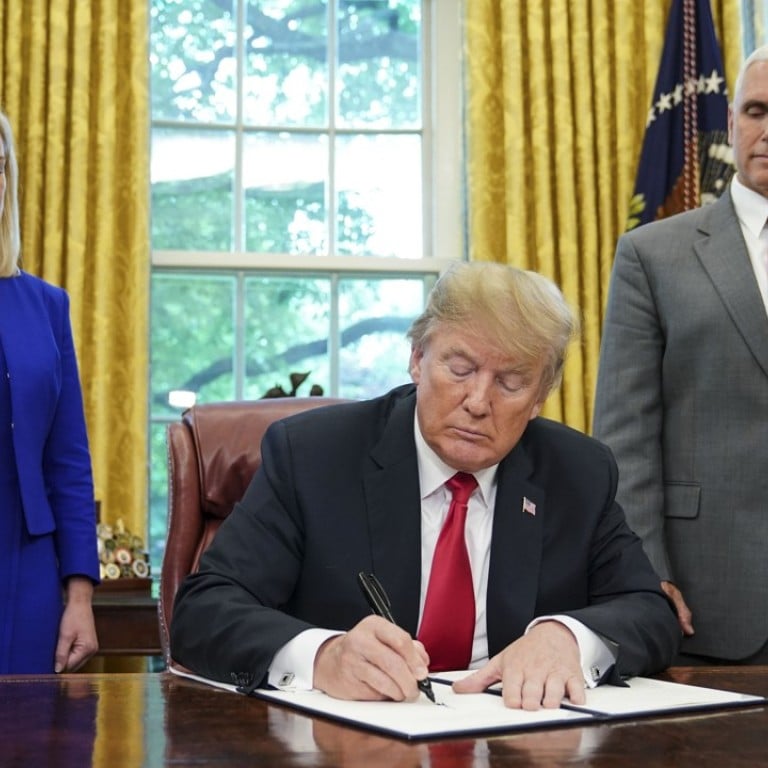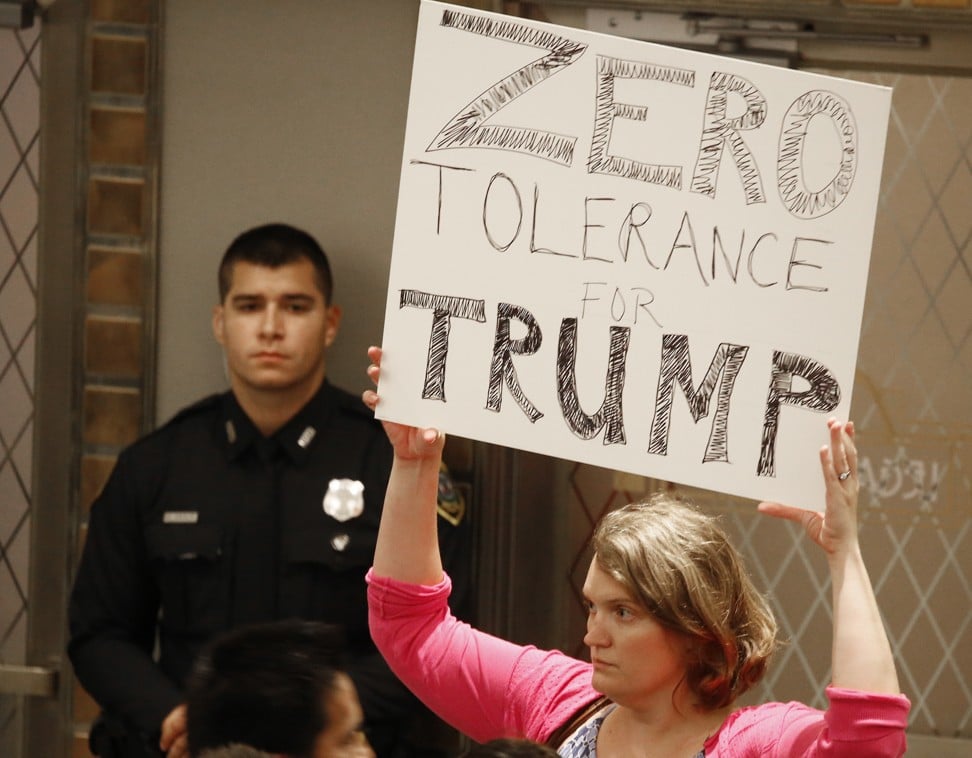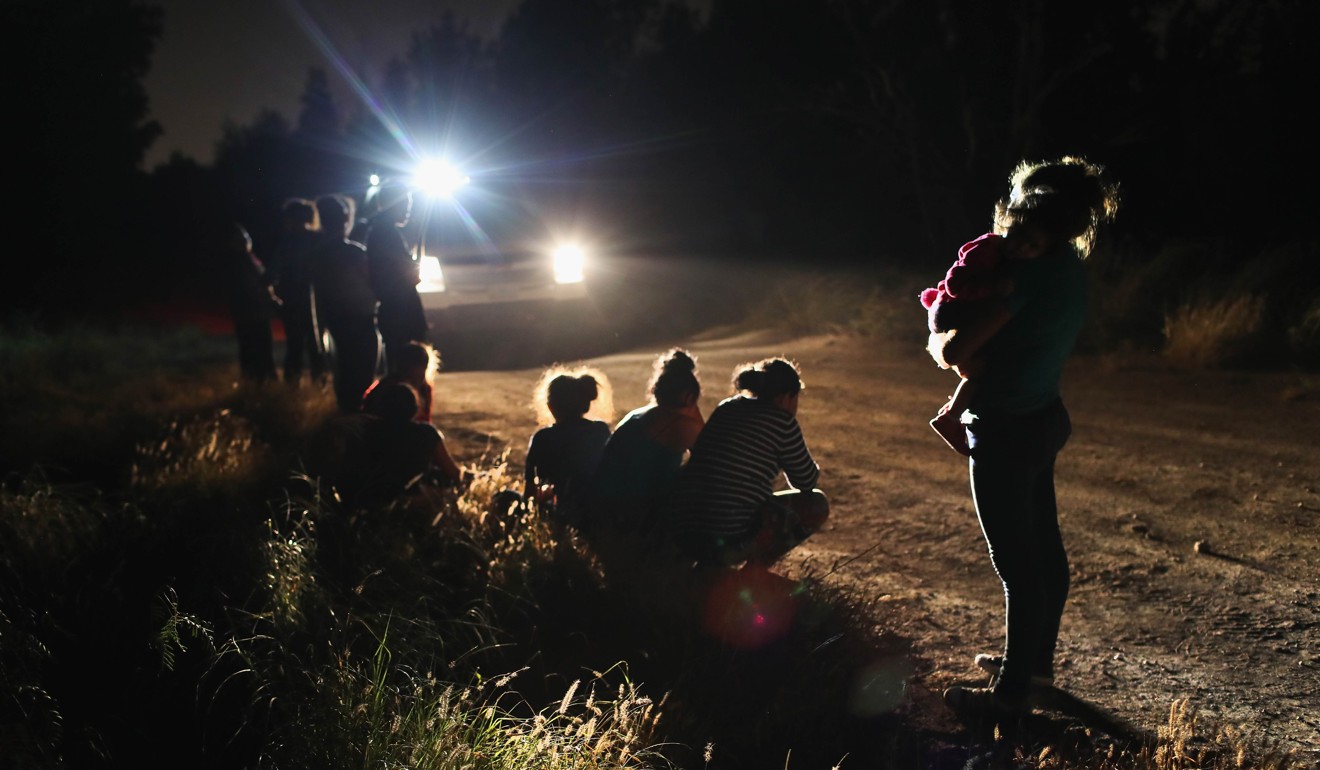
Donald Trump signs order to end migrant family separations, caving in to huge political pressure
Trump’s executive order to instead detain children and parents together until they are dealt with by the courts will likely open new legal battles
US President Donald Trump signed an executive order on Wednesday that reversed his decision to separate migrant families crossing the border from Mexico, following a global outcry.
“It’s about keeping families together,” Trump told reporters at the White House. “I didn’t like the sight or the feeling of families being separated.”
Why do migrants cross US border? If they don’t, they will be killed
But he added that the policy “continues to be a zero tolerance … We have zero tolerance for people that enter our country illegally.”
The order directs US Homeland Security Secretary Kirstjen Nielsen to detain families together when they are apprehended after crossing the border and allows them to be housed on military bases indefinitely.
But the directive may violate a 2008 law that require special handling of migrant children who must be transferred from Nielsen’s department to the Department of Health and Human Services after 72 hours.
And it is likely to open a new legal battle - under the terms of a 1997 court agreement known as the Flores settlement, the federal government agreed to hold immigrant minors no longer than 20 days. Immigration cases typically take much longer than that.
Several Republican members of the US House of Representatives who were briefed by Nielsen about Trump’s executive order said they did not know if it would prevent family separations during detentions longer than 20 days.
In the past, the government released entire families once the 20-day clock ran out.
Now, questions were immediately raised about whether children will be released into foster or other care at the end of 20 days if their parents’ immigration proceedings have not wrapped up.
Why Donald Trump wants to separate immigrant children from their parents
“Basically you can only hold people for 20 days so it keeps the families together for at least that period of time while we hopefully get a legislative fix,” said Representative Mark Meadows after the briefing.
Trump has come under intense criticism from Congress, the public and the world over the separations, which have resulted in more than 2,300 children being placed in federal custody, according to the government.
Senate Republicans were preparing to advance legislation that would prohibit the government from splitting up families apprehended after crossing the border.
Trump’s decision to end the policy himself, though, represents a rare retreat for a president who often appears to court controversy. It also calls into question many of the administration’s recent claims about the basis of the “zero tolerance” policy that was announced by Attorney General Jeff Sessions in April.
As immigrant outcry grows, 8 US states refuse to send troops to border
The president and his top aides have insisted for days that they had no choice but to separate children from their parents due to unspecified US laws.
On Wednesday, Trump tweeted that “It’s the Democrats fault, they won’t give us the votes needed to pass good immigration legislation. They want open borders, which breeds horrible crime. Republicans want security.”
But there is no law requiring children to be separated from their parents at the border, and Trump, whose administration imposed the rule, could have stopped the practice at any time without an executive order.
The furore over the family separations and the chaotic White House response engulfed Republicans less than five months before November elections that will determine whether the Republican Party remains in control of Congress.
The issue drowned the Republican Party’s preferred campaign message about a booming economy and delivered harrowing footage of wailing toddlers into American living rooms.
Trump’s wife was among those urging him to reverse course. First Lady Melania Trump encouraged Trump to act on his own if Congress wasn’t able to, a White House official said.
She’s the face of Trump’s ‘zero tolerance’ immigration policy
Trump said his daughter Ivanka also spoke with him several times to express her concerns. “Ivanka feels very strongly,” Trump said. “My wife feels very strongly about it. I feel very strongly about it. I think anybody with a heart would feel very strongly about it.”
Polls show the public is overwhelmingly opposed to separating migrant children from their parents, though a majority of Republicans support the approach.
Perhaps more importantly, 70 per cent of women disapprove, according to a Quinnipiac University poll taken June 14-17. Female suburban voters are considered crucial in deciding control of Congress this fall.

The chorus of disapproval was joined by former president Barack Obama in a Facebook post on Wednesday that began by acknowledging that Wednesday was World Refugee Day.
“To watch those families broken apart in real time puts to us a very simple question: are we a nation that accepts the cruelty of ripping children from their parents’ arms, or are we a nation that values families, and works to keep them together?” Obama asked.
‘Cover up’ claim after US lawmakers stopped from seeing immigrant children
“To find a way to welcome the refugee and the immigrant – to be big enough and wise enough to uphold our laws and honour our values at the same time – is part of what makes us American,” he added.
Obama’s post concluded by saying that “we have to do more than say ‘this isn’t who we are’. We have to prove it – through our policies, our laws, our actions, and our votes.”
Pope Francis and UK Prime Minister Theresa May also weighed in on the practice on Wednesday.
The pope said he stood with US bishops who had denounced the action as “immoral”, and denounced anti-immigrant action in both the US and Europe, saying that “I believe that you cannot reject people who arrive”.
“Some governments are working on it, and people have to be settled in the best possible way, but creating psychosis is not the cure,” Pope Francis said. “Populism does not resolve things. What resolves things is acceptance, study, prudence.”
Star Trek’s George Takei: Trump immigration law worse than internment camps
And May said on Wednesday that images of children held in cages were “deeply disturbing”, adding: “This is wrong. This is not something that we agree with.”
Opposition lawmakers rebuked May for not criticising the Trump administration in stronger terms, or for cancelling Trump’s visit to the UK, where he is scheduled to meet Queen Elizabeth on July 13.
Trump acted as it became clear that House Republicans were unable to reach consensus on either of two immigration bills they were considering that included provisions to halt family separations. The House leaders still hope to have votes on both bills on Thursday.

“We do not want children taken away from their parents. We can enforce our immigration laws without breaking families apart. The administration says it wants Congress to act and we are,” House Republican Leader Paul Ryan said before Trump’s actions. “Tomorrow the House will vote on legislation to keep families together.”
Ryan said the proposed legislation also resolves “in a very elegant way” the status of the so-called Dreamers, undocumented immigrants brought to the United States illegally as children who had, under Obama administration initiatives, been offered a path to citizenship. No details were immediately provided on the Dreamer aspect of the bill.
The White House has previously come under fire from Democrats for using the children as a “bargaining chip” in negotiations over immigration. Trump ended protections for Dreamers earlier in the year, although a court has ordered a stay on that motion.



